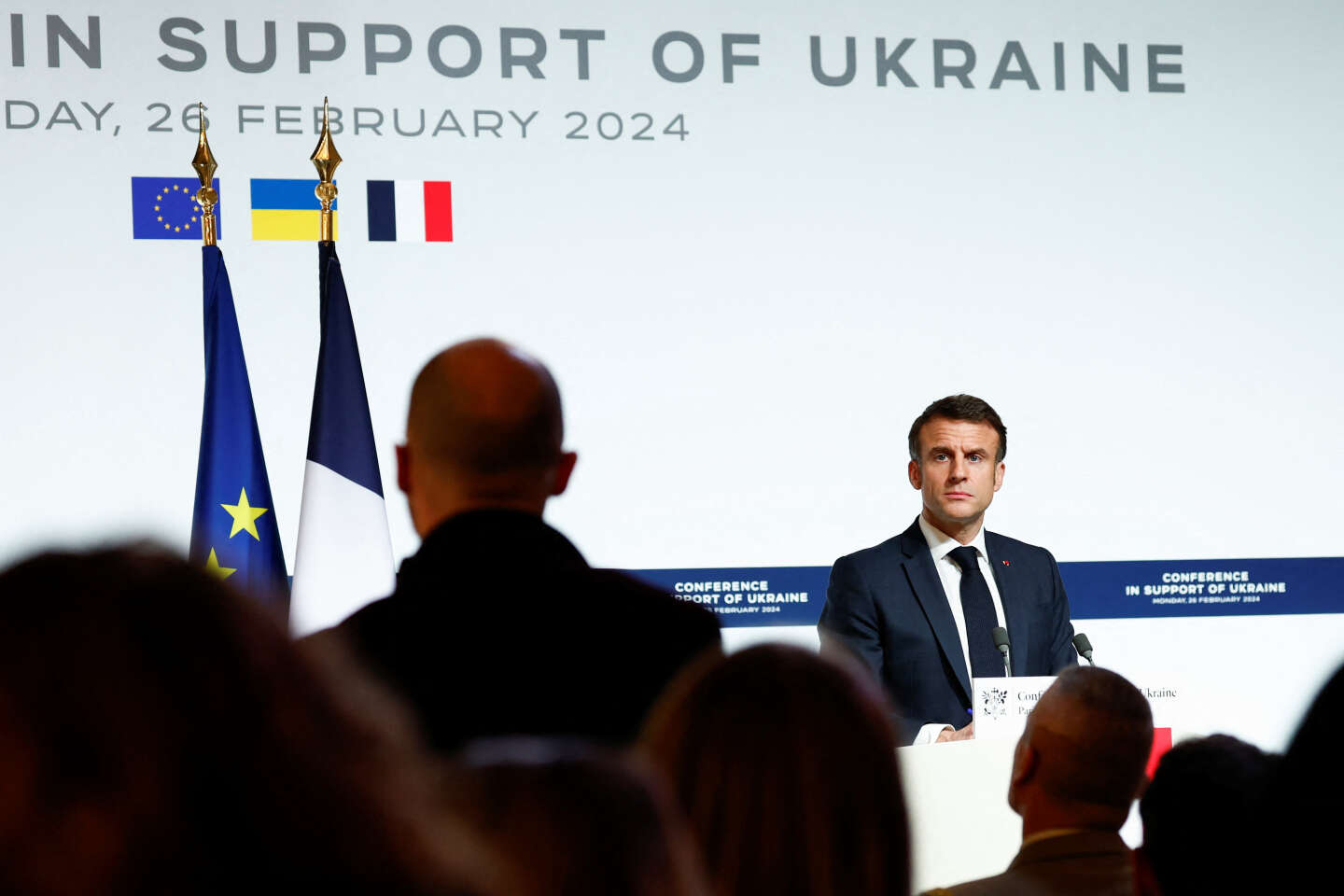


With two months to go before the June 9 European elections, the polls have been unforgiving: The presidential coalition's list of candidates lags far behind that of the Rassemblement National (RN, far-right). From one poll to the next, a gap of at least 10 points separates the two parties, portending a harsh setback for the presidential bloc on election night. In 2019, their results had come within a hair's breadth of the far-right party's scores. Everything happening would seem to suggest that the Ukraine card played by French President Emmanuel Macron − which he was hoping would highlight his differences with the RN − has not yet been enough to sway voting intentions in his bloc's favor.
Valérie Hayer, the lead candidate of the presidential coalition – whose list of candidates has yet to be formalized – has remained largely unknown when compared to Marine Le Pen's lieutenant and the RN's lead candidate, Jordan Bardella. Bardella has been eager to avoid any kind of debate, especially about Russia's war in Ukraine, while his rival from the Renaissance party made a point of visiting Kyiv at the end of March to show her support for the Ukrainian people.
While denying accusations of electioneering, the presidential bloc has been trying in recent weeks to make Ukraine one of the key issues of the campaign. With the war getting bogged down and Russia gaining ground in the Donbas, Macron has sought to prepare the French, and the Europeans, for a "surge" in military support for Kyiv. The situation in Ukraine has become serious enough, and the Kremlin's "hardening" of its position toward France has become sufficiently aggressive, to justify the president's concern. All the more so given that time would be on Moscow's side in the event of Donald Trump's return to power in the country's presidential election in November. Trump has boasted of being able to resolve the conflict in 24 hours.
Muddied discussion
Faced with these bleak omens, the strategy consisting of placing Ukraine at the heart of the campaign incurs the risk of having an ambivalent effect: While it may contribute to rallying the Macron-aligned electorate between now and the election, at this stage it has above all given some breathing room to the "pro-Russian" parties that Russian President Vladimir Putin's invasion had largely silenced since February 2022.
The March 12 debate at the Assemblée Nationale on the bilateral security agreement signed between France and Ukraine certainly made it possible to clarify the intentions of each party: 372 MPs voted in favor of these commitments and 99 against. Macron's supporters, most of the Les Républicains (LR, right) MPs, the Socialists and the Greens (both left) all backed the agreement; while the RN abstained; and La France Insoumise (LFI, radical left) and the Communists (left) voted against it.
You have 50.6% of this article left to read. The rest is for subscribers only.
